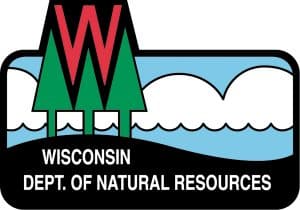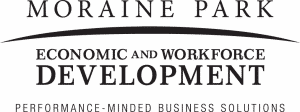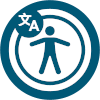NEW! Lead Service Line Inventory & Removal for Lead & Copper
This course will cover how to properly inventory and remove lead service lines for potable water systems and how to get funding necessary to complete this work. Intended for municipal small water system operators, “other than municipal” (OTM) community water system operators, or non-transient non-community (NN) water system operators. Attendants will receive an overview of lead service lines, proper inventory and removal procedures, and how to secure funding to complete and possibly accelerate this work.
NEW! Emerging Groundwater and Well Contaminants: PFAS and Others:
This course was developed to cover the issue of emerging contaminants in drinking water systems. This course is intended for municipal small water system operators, “other than municipal” (OTM) community water system operators, or non–transient non–community (NN) water system operators. Attendants will receive an overview of emerging contaminants, system sampling for these compounds, basic laboratory analysis overview, and treatment options should you detect them.
Bacteria Sampling and Microbiology 101:
A dreaded sentence, “You have bacteria in your water.” What is bacteria, how does it get into your water system, how are bacteria samples collected, and how are they analyzed in the lab? These are all questions that will be answered during this course.
A Day in the Life of a Small Water Operator:
This course was developed to cover an operator’s daily procedures, inspections, and routine maintenance expected in a water system. This course is intended for Small Water Systems (OTM/NN) Certified Operators: “other than municipal” (OTM) community water system operators, or non–transient non–community (NN) water system operators. Attendants will receive an overview of system sampling, basic laboratory analysis, inspections, and distribution maintenance.
Basic Water Works Mathematics:
This course will introduce the participant to basic math concepts and formulas that are common in the water works industry. The course will discuss water works mathematics used daily in the operation of water works systems. Common formulas, conversion factors, and examples of their use will be thoroughly covered during this course.
Sampling, Monitoring Procedures and Requirements:
The main topics of interest for this course are going to be bacteria, nitrate, nitrite and arsenic as well as touching on lead and copper sampling. We will discuss how a sample would be collected for each, what the monitoring procedures and requirements actually are, and we will discuss how these samples can be analyzed in the lab.
Well Water System Sanitary Survey 101:
The Sanitary Survey OTM/NN session will investigate the various components that make-up a well water sanitary survey. The session will also explore common system deficiencies, solutions, and technology to help operators prepare for a survey, understand the survey, and prevent any issues that may be found during a sanitary survey. Case studies and a ‘life in the day’ will explore some public water systems through the eyes of the operators by going through their systems with them.
Lead and Copper Sampling, Monitoring Procedures and Requirements:
This course is to be developed to cover all aspects of lead and copper sampling, and in particular provide Small water system operators who work at an “other than municipal” (OTM) community water system or a non-transient non-community (NN) water system, with updated lead and copper sampling, monitoring procedures, and requirements, as well as the opportunity to earn continuing education credits.
Pumps: Centrifugal and Positive Displacement
This course will cover the varying types of pumps utilized by water work systems. Centrifugal pumps and positive displacement pumps will be discussed. Pump discussion will include types, options, parts, ancillary equipment requirements and uses.
Groundwater Contaminants and Treatment Options
This course will cover all aspects of groundwater contamination with relevance to small water system operators who work at an “other than municipal” (OTM) community water system or a non–transient non–community (NN) water systems. The goal is to provide an overview of common ground water contaminants, remediation options, and emerging contaminants of concern.




